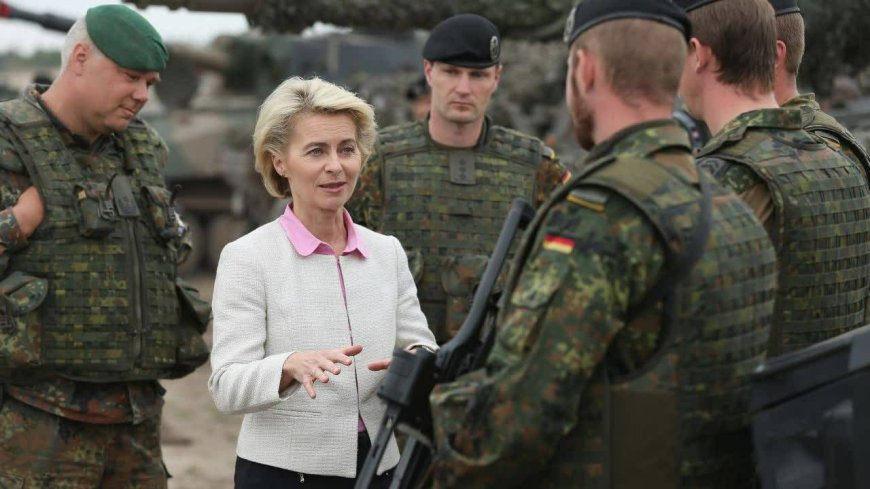Ursula von der Leyen's Vision: The Future of European Defense
Ursula von der Leyen's Vision: The Future of European Defense

The outbreak of the conflict in Ukraine has prompted the European Union (EU) to reevaluate its defense capabilities and enhance its military power. Concerns about potential loss of military support from the United States, as expressed by former President Trump, have further fueled the need for the EU to take action. In response, European Commission President Ursula von der Leyen delivered a speech on September 13 in the European Parliament, outlining the Union's intention to increase its military and defense budget in the coming year. This article explores the concept of the "European Defense Union" and delves into the European Defense Industry Strategy, which aims to achieve European defensive independence.
European Defense Industry Strategy
The European Defense Industry Strategy represents a comprehensive plan designed to bolster the production of vital equipment and achieve self-reliance within the European defense sector. This strategy aligns with the European Defense Production Law and falls under the purview of the executive committee of the European Union. It not only focuses on traditional defense matters and military ammunition production but also emphasizes the need for European involvement in more complex areas such as space and cybersecurity. President von der Leyen envisions a strategy that takes into account comprehensive approaches in these domains.
Enhancing Industrial Capacity and Research:
A critical aspect of the European Commission's approach to defense is the imperative for all member states to augment their industrial capacity, including research and development efforts. The European Commission aims to facilitate the identification of common priorities among member states, fostering collaboration and establishing a unified and coherent program that garners acceptance from all Union members. Pooling resources, investing in research, and accessing cutting-edge technologies in a cost-effective manner are seen as logical pathways to enhance security throughout Europe.
Budgetary Considerations and Infrastructure Plans
Despite financial constraints and ongoing monetary crises, the European Union has approved a defense budget that reflects the consensus among members of the EU Parliament. The proposed budget, which exceeds 600 million euros, indicates a commitment to advancing key infrastructure plans. However, the allocated budget falls short of the European Parliament's 2020 estimation, which recommended a reduction in defense spending between 2021 and 2027 to redirect funds towards Union infrastructure. This deficit compelled the EU to reallocate resources from other areas to mitigate the budgetary shortfall, particularly in the context of supplying weapons to Ukraine.
Long-Term Challenges
An essential aspect of the new European defense strategy is its long-term implementation plan and the pursuit of overarching objectives. Previous defense plans were time-constrained, typically concluding by the end of 2027. President von der Leyen seeks to bridge this gap, enabling Europe to attain independent military capabilities and bolster its influence within the international system. To achieve these goals, effective communication of the plan to Union members and key stakeholders, including defense companies, is crucial. Additionally, clarity on the mechanisms and nature of collaboration with NATO is needed to avoid bureaucratic challenges and ensure consensus between the EU Commission and the Parliament.
Conclusion
President von der Leyen's ambitious European defense strategy necessitates careful consideration and effective communication to garner support from both Union members and stakeholders. The expansion of the European Union further complicates the situation, as differing opinions on defense spending and economic pressures may undermine the feasibility of the proposed plan. The upcoming European parliamentary elections will serve as a significant indicator of public sentiment, reflecting the populace's aspirations for their future and the Union's direction. Given the current geopolitical landscape and the importance of defense for Europe, it is imperative to closely observe the trajectory of the defense budget and assess whether the Union can overcome these challenges and reach a comprehensive solution that aligns with the expectations of its citizens.













































